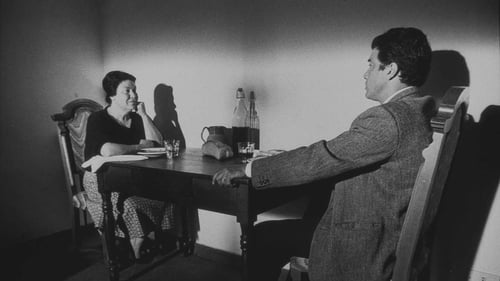
Director of Photography
“당신은 이런 이를 본 적이 있나요? 하나의 존재 안에 수많은 것들을 품고 있는 그런 여인을. 그리하여 그녀의 모든 몸짓과 그녀를 향한 모든 생각이, 당신의 대지와 하늘, 말과 기억들, 당신도 모르게 스쳐 지나가는 나날들, 미래들, 확실한 것들, 그리고 결코 당신의 것이 될 수 없을 대지와 하늘에 이르기까지 모든 것들을 무한히 품고 있는 것처럼 여겨지는 그런 이를 본 적이 있나요?”() 잠에서 깨어, 꿈결에 본 여신 아르테미스를 애타게 찾아 헤매던 목동 엔디미온은 한 낯선 이에게 이렇게 말한다. 숨막히게 아름다운 파베세의 문장은2008년 칸영화제 감독주간에서 발표된 장-마리 스트라우브의 단편에서 한 노배우의 입을 통해 읊조려진다. 은 스트라우브 평생의 반려이자 영화적 동지였던 다니엘 위예가 세상을 떠난 후, 스트라우브가 단독으로 연출한 첫 번째 작품이다.

Director of Photography
Where we learn how Orpheus seduced Eurydice.

Cinematography
In Italy, immediately subsequent to the war, a group of people who lost all they possessed during the conflict, settle in a village in ruins. They intend to restore the city from the rubble and re-start life, in imitation of the women of Messina who rebuilt their city, destroyed as it was by an earthquake. Oscillating between respect and suspicion, co-existence between group members is tense. Things become complicated when an envoy from the government arrives to say that nothing there belongs to them. The film is a free adaptation of fragments of the novella ‘The Women of Messina’, by Sicilian writer Elio Vittorini.

Cinematography

Assistant Camera
A modest and run-of-the mill early-middle aged couple, Sandra and Benoit, travel to a vacation house in southern France, to spend some holidays with friends. When they arrive, they find that all their companions live completely according to nature; that is all are nudists.

Camera Operator
엘리오 비토리니의 반 파시스트 소설 `시칠리아에서의 대화`를 각색한 작품. 실베스트로는 어머니를 만나기 위해 고향 시칠리아를 방문한다. 집으로 향하던 길목에서 그는 각양각색의 사람들을 만나고, 그들과 일상적인 대화를 나눈다. 어딘가 부자연스럽지만 위트 있는 대화의 연속이 마치 한 편의 연극 혹은 초기 유성영화를 연상케 한다. 모든 것이 절제된 미니멀한 형식 속에서 간결한 이미지만을 전달하며 관객에게 순수한 ‘영화보기’의 체험을 제공하는, 불가사의한 힘의 영화.


